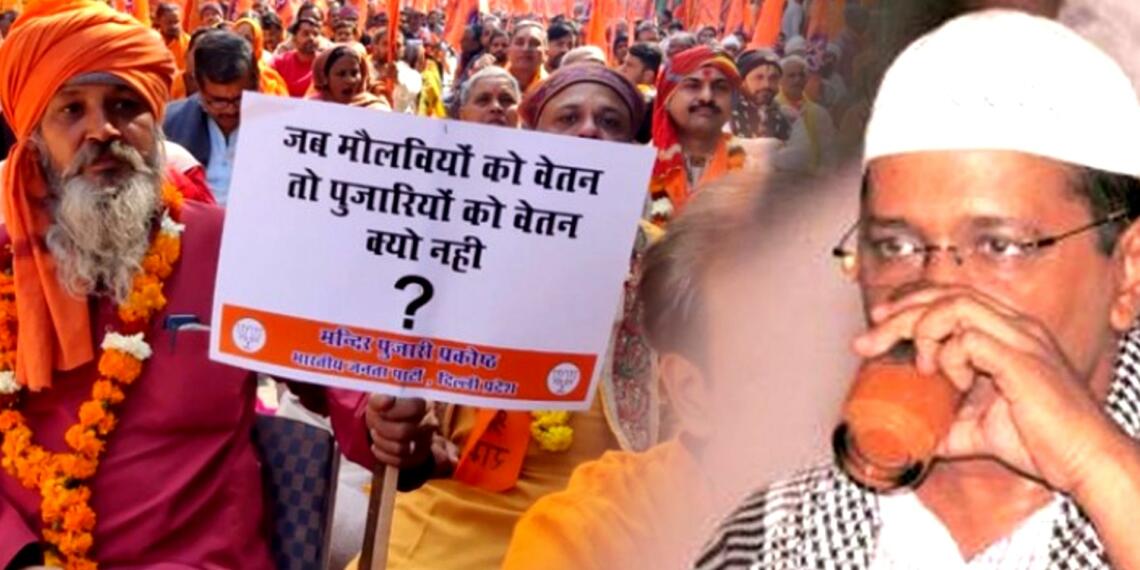Arvind Kejriwal’s political strategy seems to have taken a desperate turn as he scrambles to woo voters ahead of the upcoming assembly elections. The former Delhi Chief Minister has now shifted his attention to temple priests, promising them a monthly salary of Rs 18,000 if his party retains power. This move, while cloaked in altruism, raises questions about intent, timing, and fiscal responsibility. For months, employees of the Delhi Wakf Board have protested unpaid salaries, a glaring reflection of the state’s financial disarray. Amid this chaos, Kejriwal’s sudden generosity toward Hindu temple priests has sparked a heated debate. Was this decision a genuine attempt to address long-pending demands, or merely a reaction to a Delhi High Court directive following a BJP petition? Either way, the optics are hard to ignore: a beleaguered leader grasping at straws to regain credibility. At a press conference, Kejriwal lamented the neglect of pujaris, painting his government as the saviour of marginalized religious leaders. Yet, the BJP’s retort is damning: why was this “neglect” ignored until now? For years, pujaris protested and even turned to the judiciary for justice, only to be met with silence. Meanwhile, Kejriwal’s administration had no qualms about extending financial aid to imams, a move that critics argue was driven by vote-bank politics.

Adding to the controversy is Kejriwal’s claim that his government’s promise of Rs 18,000 salaries for temple priests is a national first. This boast rings hollow when juxtaposed with his tarnished track record. From the extravagant renovation of his official residence, dubbed the “Sheesh Mahal,” to corruption scandals that saw senior party leaders jailed, Kejriwal’s “haqeeqat” sharply contradicts his “aadmi” narrative. The damage to Kejriwal’s credibility is undeniable. His rhetoric of honesty and accountability has been eroded by repeated allegations of mismanagement and cronyism. The judiciary’s leniency in granting him bail did little to restore public faith, especially when paired with restrictions barring him from office. His assertion that he seeks exoneration in the “people’s court” smacks of defiance born from desperation. Delhi’s electorate, having handed AAP two consecutive mandates, now faces a grim reality: promises unfulfilled and governance marred by scandals. Kejriwal’s pivot to religious leaders is a transparent attempt to salvage a faltering campaign. But voters are unlikely to overlook his administration’s failures, from unpaid salaries to misappropriation of state resources. In a last-ditch effort to cling to power, Kejriwal is betting on pujaris to deliver what governance could not. Whether this gambit succeeds or marks the end of his political road will be decided not in press conferences, but at the ballot box. Delhi’s citizens, once enamoured by his promises, may now hold him accountable for a legacy of unfulfilled expectations.






